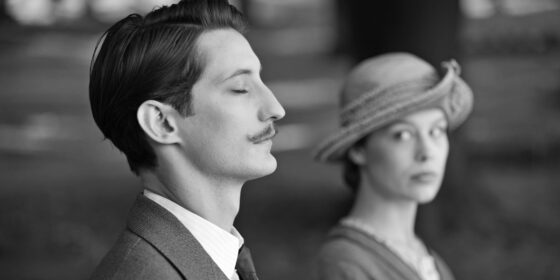Frantz (François Ozon, France/Germany) — Special Presentations
By Tommaso Tocci
Almost a decade after the disappointing Angel, François Ozon is again stepping out of France to direct a film abroad in a different language. Fortunately, he fares much better this time around with Frantz, a post-WWI black-and-white melodrama dealing with duality, deceit, and distance as fuel for the obfuscating power of the mind.
No doubt among the most distinct entries in a filmography as diverse as it is uneven, Ozon’s latest is elegantly economical in drawing a portrait of a small German town deeply traumatized by the Great War. Like most residents, Anna always wears black and is often seen walking to and from the cemetery to visit her once betrothed Frantz, who never returned from the front. Living in the house of Frantz’s parents, she’s effectively trying to read her own story on a blank page, as she will find herself doing with a crucial letter later in the film. The arrival of Adrien, a young man who knew Frantz back in Paris, soothes the soul of the whole family with memories of joy, music and dancing that he shared with their lost son. In Ozon’s most unnecessarily literal touch, these flashbacks light up with colour, if only for a few promising seconds. But can you accept the gift of chromatic richness when it’s offered by a French hand?
Anchored by a vividly restrained performance from young German actress Paula Beer, whose wall of grief Pierre Niney is left to climb with his disarmingly expressive eyes, Frantz originates from a play, later reworked by Lubitsch into his Broken Lullaby (1932), which focused on the French visitor rather than the grieving Germans. More significantly, the original ultimately went for a synthesis of these two conflicting worlds, while Ozon doesn’t shy away from the brutal historical undercurrent of the material. In fact, Frantz deftly escapes the traps of its own limited premise by creating a mirror version of itself, like many of its own characters do. Twin sections in Germany and France provide a satisfying symmetry to the film’s structure, and elaborate on the notion that the lies and gaps in a lover’s discourse are where things really get interesting.
Tommaso Tocci


